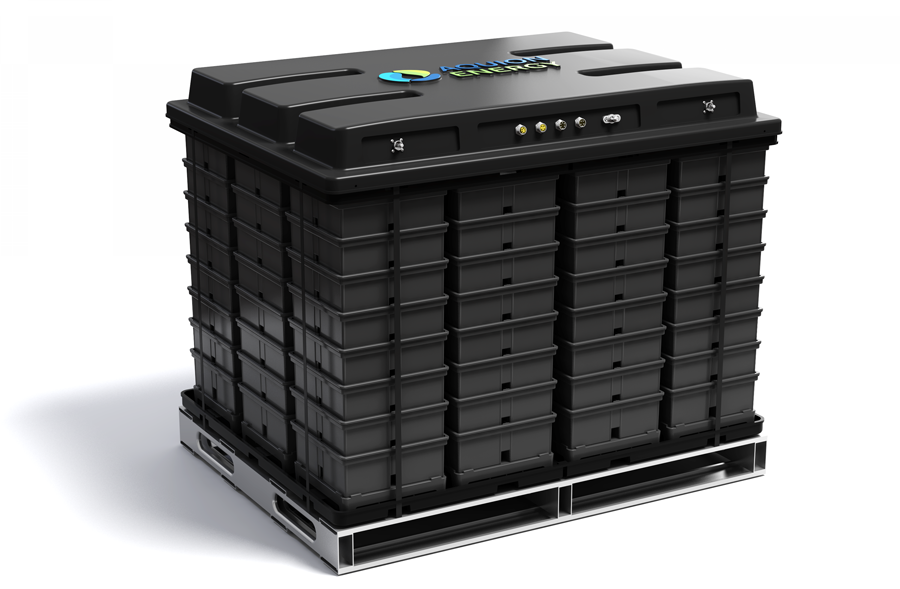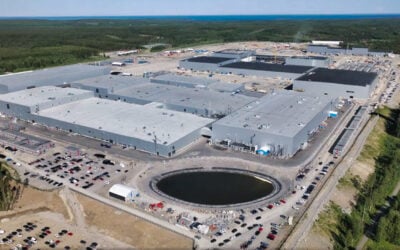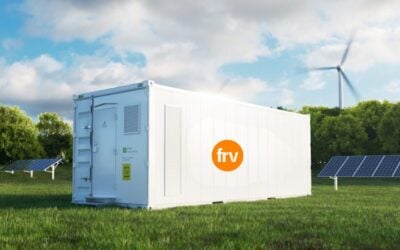
Aquion Energy, maker of energy storage batteries and whole systems based on a novel electrolyte with a chemical composition similar to saltwater, is back in business.
The American company, which began production in 2014, went bust in March, offloading 80% of its workforce and sending its website offline. One British company, Solar PV Partners, which was selling Aquion Aqueous Hybrid Ion (AHI) batteries said Aquion had developed a “sustainable, clean and non-hazardous product”, also describing it as “cost-effective” and “scalable” compared to alternative storage technologies.
Another UK company installing the batteries touted its advantages on Energy-Storage.News by saying it “costs the same” as lithium-ion, but can be cycled twice as many times as the majority of those more commonly available batteries.
Aquion announced just before last weekend that operations had resumed at the company and that it had emerged from Chapter 11 status, the bankruptcy protection law under which it had been compelled to file agreements.
Try Premium for just $1
- Full premium access for the first month at only $1
- Converts to an annual rate after 30 days unless cancelled
- Cancel anytime during the trial period
Premium Benefits
- Expert industry analysis and interviews
- Digital access to PV Tech Power journal
- Exclusive event discounts
Or get the full Premium subscription right away
Or continue reading this article for free
With deployments into off-grid markets and “strategic” projects in territories like Japan starting to appear, the company had been tipped for big things before the Chapter 11. Founder and CTO Jay Whitacre was even awarded half-a-million dollars that came with the Lemelson-MIT Prize, which honours technological innovations that can “improve the world” from mid-career inventors for the AHI battery.
Some commentators argued that Aquion had been unprepared for a market in which lithium-ion prices had fallen even more rapidly than forecast and was simply unable to compete, despite the technological strong points of its devices and systems.
New owner is unnamed US-majority investor
A couple of months ago, it was reported that a company based in Europe was bidding on Aquion’s assets, although it was never clear if the intention was to carry on the company and its name. However, that bidder appears to have lost interest, or to have been unsuccessful, as according to Aquion, the new owners are an as-yet unnamed “majority-American joint venture (JV)”.
Philip Juline, now CEO of Aquion, said the new leadership aimed to turn Aquion into a “billion-dollar company in the upcoming years”, claiming it was only limited by its “ability to ramp and scale” operations to meet demand.
“Aquion Energy will be a stronger company after emerging from this protection transition period. We are refocused on technology and go-to-market opportunities that will grow significant volume for the company in the coming years. Aquion’s battery technology has always been world leading. We now need to focus on what we do best – creating the safest, cleanest, and lowest cost per kWh-cycle battery technology in the world – with a simple business model that can effectively compete in the marketplace,” Juline also said.
“With a renewed focus on expanding our product offerings into the growing markets in China and other global markets, we intend to deliver the lowest price per kWh-cycle battery in the world.”





